June 6, 2025: Albemarle Supervisors tie vote denies Woolen Mills floodplain request
Plus: The owner of 1301 Wertland Street appeals to Charlottesville City Council to allow demolition of historic house
According to the ramshackle naming convention employed by Town Crier Productions, this is the 876th edition of the Charlottesville Community Engagement newsletter. Half of that number brings us to the 438th installment from September 30, 2022. If asked, how much could you remember about that day? Would you want to know? I’m Sean Tubbs, and this is not an investigation.
In today’s installment:
The owners of one of Charlottesville’s historic houses wants City Council to allow demolition because 300 bedrooms would outweigh preservation
The Charlottesville Albemarle Convention and Visitors Bureau wants your input on what stories tourists should come here to learn
Albemarle County has issued a request for proposals for firms to enter into a public private partnership for Eastern Avenue
The Albemarle Board of Supervisors has denied a request to fill in the floodplain to allow for an industrial building
First shout-out: Alliance Française de Charlottesville
The Alliance Française de Charlottesville promotes the French language and francophone culture through educational and cultural programs. Visit the Alliance Française website to learn more about group classes, private lessons, cultural events, and social activities for both kids and adults.
Owner of 1301 Wertland files demolition appeal to Council
Under Charlottesville’s Development Code, the Board of Architectural must grant a Certificate of Appropriateness if a property owner wants to demolish a structure within one of the city’s architectural design control districts.
The BAR declined to give that permission for 1301 Wertland Street in May at a hearing where no one appeared to represent the company.
Now the property owners 1301 Wertland LLC and JSB Development LLC have appealed the denial to the City Council.
Attorney Steven Blaine with the firm Woods Rogers argued in a June 2 letter to Council that demolition would allow for a greater purpose. (read the letter)
“City Council must overturn the BAR’s action because the BAR failed to consider that the demolition of this structure could have any public purpose or necessity and therefore it failed to make one of the necessary findings under the BAR Review Criteria for Demolition,” Blaine wrote.
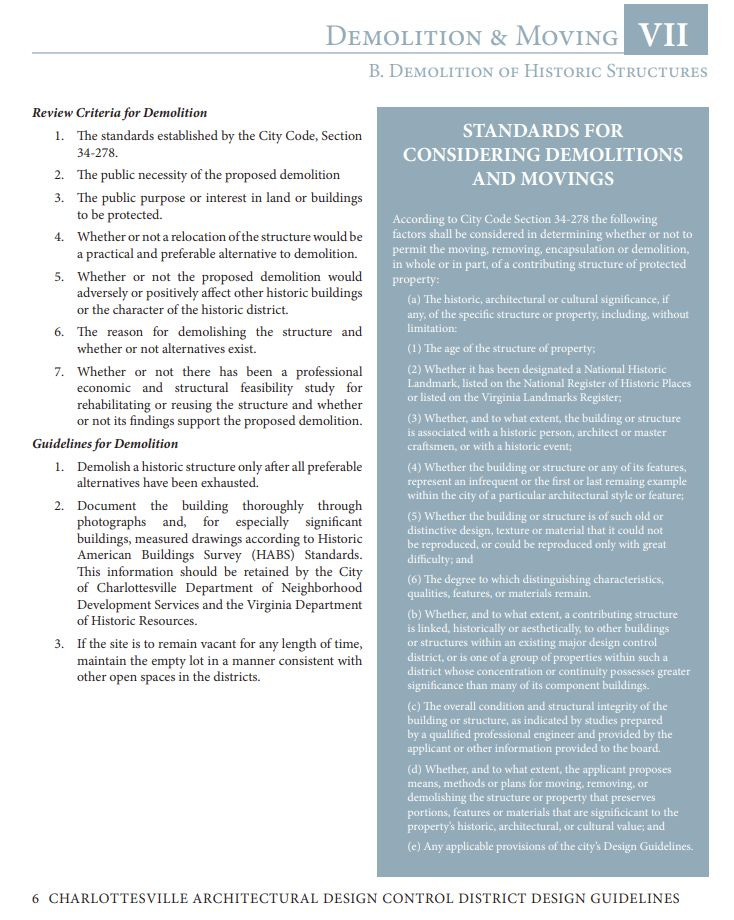
Blaine wrote that the property is now zoned Corridor Mixed Use 5, which could allow up to 300 bedrooms and that outweighs any historic value.
“A re-development would translate to 300 more UVa. students walking to classes, reducing vehicular traffic and relieving student housing pressures on other neighboring communities, such as 10th and Page,” Blaine said.
Blaine also wrote that the BAR failed to take this into account during their deliberation. The letter does not mention that the applicant did not appear at the BAR’s hearing on May 20.
Blaine said that Council designated the property as High Intensity Residential during the Comprehensive Plan process.
“If it had been Council’s intent to forever preserve all existing structures within the Wertland ADC District, Council would not have designated the areas within the District for such a higher intensity residential use,” Blaine said.
The item will go before the City Council at a later date. Earlier this year, Council overturned the BAR’s denial of a demolition request for a single-family house on Chancellor Street.
Tourism bureau seeking input on future of the regional brand
When people from around the world visit Charlottesville, what stories should they learn?
That’s the general question behind a new initiative from the Charlottesville Albemarle Convention and Visitors Bureau (CACVB). Here’s a bit from a press release.
“The storytelling of our region has been in others’ hands for far too long,” said Courtney Cacatian, Executive Director of the CACVB. “Through this process, our residents will be able to express what they want the world to know about visiting Charlottesville and Albemarle County. We will craft a message that welcomes everyone on the terms established by our people and their vision of who we are and want to be.”
As part of the effort, the CACVB has launched an online survey that will be open through July 31.
“This survey hopes to capture real resident sentiment about visitors and the stories they want to tell about the region,” the press release continues. “Residents can access the survey and find more information about the initiative at www.weseeyoucville.org.”
In addition, there will be seven town halls in July to get additional feedback. The schedule will be posted to the initiative’s website.
“These meetings will be hosted in community spaces across Charlottesville and Albemarle County and are designed to ensure participation from a broad cross-section of residents,” reads another section of the press release. “Each session will last one hour and will also offer a virtual Zoom option for those unable to attend in person.”
The initiative satisfies one of the goals from the organization’s Tourism Master Plan which was adopted last June. The document has the title Destination 2045: Crafting Our Tourism Future Together.

Albemarle County puts Eastern Avenue project out to bid
One of the dilemmas faced by Albemarle County is a growing population and limited transportation funding to build all of the infrastructure called for in growth area policies.
One of the key components of the Crozet Master Plan is a roadway called Eastern Avenue which is intended to serve as another way for people to travel north and south. Cost estimates increased sharply in the summer of 2023, pushing ahead the timeline for the project.
Last year, Supervisors agreed to let county staff pursue the project through a public private partnership which might have the effect of bringing down the cost to the local government. A draft version of the request for proposals was distributed in April and was officially put out for bid on May 30.
“The purpose of the Project is to provide a connection between residential areas on the north side of Lickinghole Creek and Route 250 (Rockfish Gap Turnpike),” reads the purpose statement in the RFP. “This connection will supersede the approximately 5.5-mile detour currently required for residents to cross Lickinghole Creek and reach Route 250 which is a key minor arterial linking to shopping centers, schools, and providing interstate access.”
Under the terms of the draft comprehensive agreement, Albemarle County’s maximum contribution to the project will be $16 million.
Technical requirements (Volume II)
There are twenty questions answered in a document posted with the RFP.
“In general, there seem to be additional plans and public relations that are likely not necessary,” reads question #3. “This is a road, just like any other that gets constructed in the county.”
“The unique nature of an Alternative Delivery Project through the PPTA and the Code of Virginia (COV) requires the submittal, review, and adoption of the plans stipulated in the Technical Requirements,” reads the response. “In short, many of these plans are necessary and provide appropriate assurances to both the County and Offeror of successful delivery of the project.”
Other questions related to right of way acquisition, a request to add language calling for a wildlife corridor, and a request to delete a reference in the documents to toll gantries.
For some reason, the story about the draft version was not posted to Information Charlottesville. Here’s a link to the May 8 edition of the newsletter.
Second-shout out: Get to know ReLeaf!
In today’s first subscriber-supported announcement: ReLeaf Cville seeks to help restore the amount of the city that is covered by trees. Here are some of their efforts since 2022.
• Planted over 300 trees particularly in neighborhoods with low tree cover, including 10th and Page and Rose Hill. Most recently in the Woolen Mills, working with the Rivanna Conservation Alliance, the group will have planted 140 trees to help keep the Rivanna River clean. Their teenage group, the Green Team, helped with the Woolen Mills plantings
• Started a three-year Tree Preservation Program with a $189.9K grant from Virginia Department of Forestry to provide free tree care to 28 Fifeville homeowners to help preserve 48 mature trees this winter.
• Educated over 540 students about the value of trees and nature in the City and developing a Green Team of 15 teenagers every year. This group is taught about the value of trees and nature in the City. After teaching them how to approach people going door – to- door, they canvas the neighborhoods asking if we can plant trees in homeowners yards. This winter the Green Team, working with the Rivanna Conservation Alliance, is removing invasive plants and plant new tree seedlings to refurbish forested areas.
• Environmental Education Summit. With a grant from Clean Virginia, in March the group held a summit with over 40 organizations involved in environmental education
Albemarle Supervisors deny permit to fill in flood plain
The Albemarle Board of Supervisors spent three hours on June 4, 2025 considering a request from a developer to fill in a portion of the floodplain to build an industrial park. In April, the Planning Commission recommended approval of a special use permit on a 4-3 vote. (my story in C-Ville Weekly) (link to meeting items)
“This is a request that you don't see that often,” said Rebecca Ragsdale, a planning manager in Albemarle County. “So we want to spend some time this evening going over the particulars of the floodplain characteristics in the location where the fill is requested.”
The property in question is seven acres and is already zoned for light industrial uses but the request is fill-in an acre and a half. The developer is seeking a flood map revision from the Federal Emergency Management Agency but needs the county to sign off as well to unlock the site’s potential.
“That fill would need to occur or be approved and need to occur before any of the light industrial uses of the existing zoning could be developed,” Ragsdale said. “So that would include things like manufacturing and processing, storage, warehousing, laboratory [research and development.”
There is no building proposed at this time. The developer is proffering a dedication of some of the land for a future greenway trail, but Ragsdale noted that there are no plans for one in the location shown.
Tony Edwards, Albemarle’s deputy county engineer, provided a background on some terminology related to the area’s hydrology beginning with the place where you can absolutely not build structures.
“The floodway itself is the channel that the river needs to carry the capacity needed for in in the adjacent area that would be in reserve to handle the discharge from a base flood elevator event,” Edwards said.
Land considered to be in the “floodway fringe” allows for extra water storage capacity and he said granting the permit would not make flood conditions worse.
“Adding fill to this area doesn't significantly alter the main channel’s capacity to convey the flood waters. So the floodplain water elevations remain unaffected,” Edwards said.
FEMA has issued a conditional approval to change the floodplain map, but that won’t become permanent until after something is built and verified.
The applicant was represented by Tim Miller of Meridian Civil Survey. He said the owner, Chris Donaldson, is aware that Albemarle County’s economic development strategy has called for more places where industrial buildings can be built. The property is within the footprint of the Office of Economic Development’s Broadway Blueprint. Last year, Supervisors said they would prefer industrial uses rather than residential
“Chris is currently constructing the Woolen Mills industrial site and because of that has determined the need for the light industrial because of the interest in that property,” Miller said.
Donaldson has also hired the Timmons Group to work on the floodplain review for FEMA and Albemarle County. He detailed how floods affect area waterways and stood by the applicant’s request.
At the public hearing, several people who live nearby asked the Board of Supervisors to deny the request. The first to speak is Bill Emory, a resident of East Market Street.
“You know this project will cause substantial damage to quality of life in adjacent parcels,” Emory said. “It will damage the character of adjacent or the character of adjacent parcels will be changed by proposed special use. Public health, safety and welfare will not be improved.”
Other nearby residents also expressed concern about flooding and the cumulative effects of development upstream. One person brought up an environmental justice concern.
“As a licensed clinical social worker and someone who is trained to understand how environmental stressors impact the well being of communities, especially those who are low income and underserved, I want to raise concerns about this proposal in regards to the social injustices to our vulnerable community that have been overlooked in this planning process,” said Alanah Horning.
Horning said the additional truck traffic to carry the fill dirt would have a negative effect on the people who live in the Southwood Carlton Mobile Home Park.
Last year, the Habitat for Humanity of Greater Charlottesville and the Piedmont Housing Alliance purchased the park and will be redeveloping it. City Council has agreed to contribute at least $8.7 million to the effort in the form of a forgivable loan.
Peggy Gilges, a resident of the Jack Jouett District, said she understood that Albemarle is seeking to diversify its revenue through attracting more industrial development.
“While I understand that industrial development may contribute more taxes to county coffers with fewer service costs than residential development, open space also has significantly fewer service costs than residential development,” Gilges said.
About a dozen speakers gave comments, all seeking denial.
When it came time for the Board to discuss the matter, Supervisor Diantha McKeel said this was a complicated decision given a lot of moving parts.
“We've been talking about this area, the Board of Supervisors have been for years, and looking to how we might best utilize this piece of property,” McKeel said, adding she was inclined to support the request given the reputation of the Timmons Group.
Supervisor Ann Mallek was inclined to vote against the request in part because she had not been convinced. She also expressed concern about the impact of trucks carrying fill dirt to the site.
“I will tell you that even 100 trucks is a lot of trucks,” Mallek said. “It's the damage to the city streets and the neighborhood streets is going to be.”
Supervisor Bea LaPisto-Kirtley said this site was one that has been identified for light industrial use and she was confident in staff’s recommendation to approve.
“Anytime you have any kind of building, whether it's residential, commercial, industrial, you're going to have movement,” said LaPisto-Kirtley. “You're going to have trucks back and forth.”
Supervisor Ned Gallaway pointed out that the county has been studying the Broadway corridor as a light industrial area for many years. He said that process had involved community input and resulted in elected officials staying they do not want residential uses in the area.
“We want to protect the current character of the [light industrial] that exists because it is the most affordable area for that commercial activity we have in the entire county,” Galway said. “That folks that work and employ and exist there now have no other option in our county so we must preserve it.”
Supervisor Mike Pruitt said it would be a tough vote and said he lives in a location next to light industrial uses.
“It seems like the universal opinion of staff and of engineering reports is that the impact is negligible to the point of being non-existent,” Pruitt said. “And it is not lost on me that the applicant has done the absolute best that they can with the site that they own to prepare a proposal that affects that zero impact standard. That being said, there are still key elements of this that give me pause.”
Supervisor Jim Andrews said he trusted the engineers, but also had to weigh the concerns expressed by neighbors.
“We can do it,” Andrews said. “‘Should we?’ is really the question.”
For Mallek the answer was no, and she rejected the idea that this would send a message the county is closed for business.
“We have hundreds of acres of light industrial land around the county that do not have the constraints of potential flooding and impacts to city neighbors,” Mallek said. “And I think we need to give a whole lot more credibility to the ecosystem services that the open space provides and the health services, the environment, human environment as well, because places where they have neglected to do those things have really suffered for it.”
McKeel pushed back on that notion and said the county pursued the Broadway Blueprint for a reason.
“I understand that people have that some of you all in the audience live there and you have jobs,” McKeel said. “What we're talking about is having a place that we can provide more jobs for folks that they can actually walk to their jobs and have a life that really is affordable.”
The vote was 3 to 3 and Albemarle has no provision for a tie-breaker. The deadlocked vote results in a denial. Pruitt, Andrews, and Mallek said no. Gallaway, McKeel, and LaPisto-Kirtley voted in favor.
Halifax County also has an even number of Supervisors but there is also a person elected to serve as tie-breaker. That happened earlier this week in relation to a solar permit. What happened? Go take a look at Miranda Baines’ reporting the Gazette-Virginian!
Reading material:
Charlottesville nurtures biotech startups, Chris Suarez, Virginia Business (paywall), June 2, 2025
‘A smack in the face:’ Vouchers holders fear federal housing cuts, Charlotte Renee Woods, Virginia Mercury, June 4, 2025
Civil rights leader Barbara Rose Johns statue set to be approved for U.S. Capitol, Katelyn Harlow, WRIC 8 News, June 4, 2025
Parents scramble as UVA daycare center reduces capacity, prepares to close, Kate Neuchterlein, WVIR 29NBC, June 4, 2025
New CEO takes charge at Albemarle Charlottesville Historical Society, Emily Hemphill, Charlottesville Daily Progress (paywall), June 6, 2025
Parents scramble as UVA daycare center reduces capacity, prepares to close, Kate Neuchterlein, WVIR 29NBC, June 4, 2025
A thing to say as #876 prepares to slide across the abacus
I would like to publicly apologize to the person who wrote me Wednesday afternoon to tell me that I had the wrong year for when the Montgolfier Brothers demonstrated their first hot-air balloon in yesterday’s edition. It was 1783, not 1873.
I thank this person for the correction and I need to explain why I was cross in my response. This week I’m with my parents out of Virginia and I am trying to tie up some of the remaining loose ends from a sudden move they made two years ago. I’m doing that work while also continuing to deliver what I’ve promised.
And now I am on the way home again. I’m grateful for being able to take the train. I like spending time in other communities and coming back. I want to know how other places do things. Hopefully I’ll get to do that more.
I have to write another story now. South of Culpeper the WiFi stops so I had better post now while I can!
The song is a band I’ve just found about and I love when that happens.




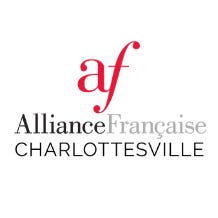
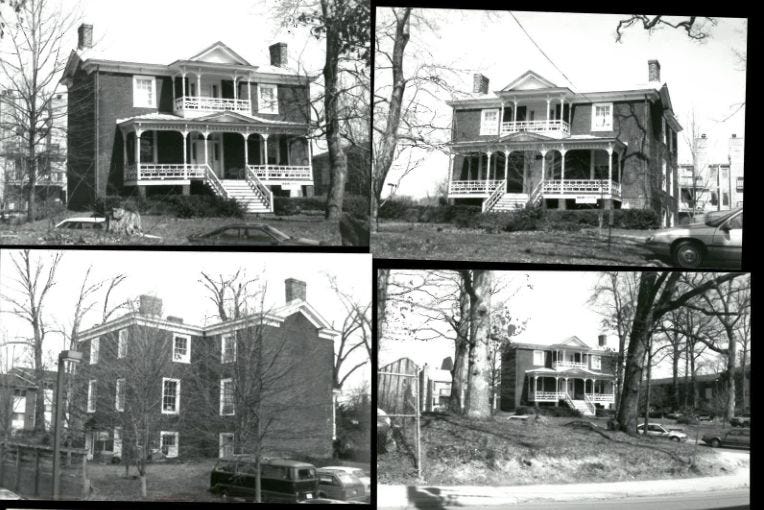
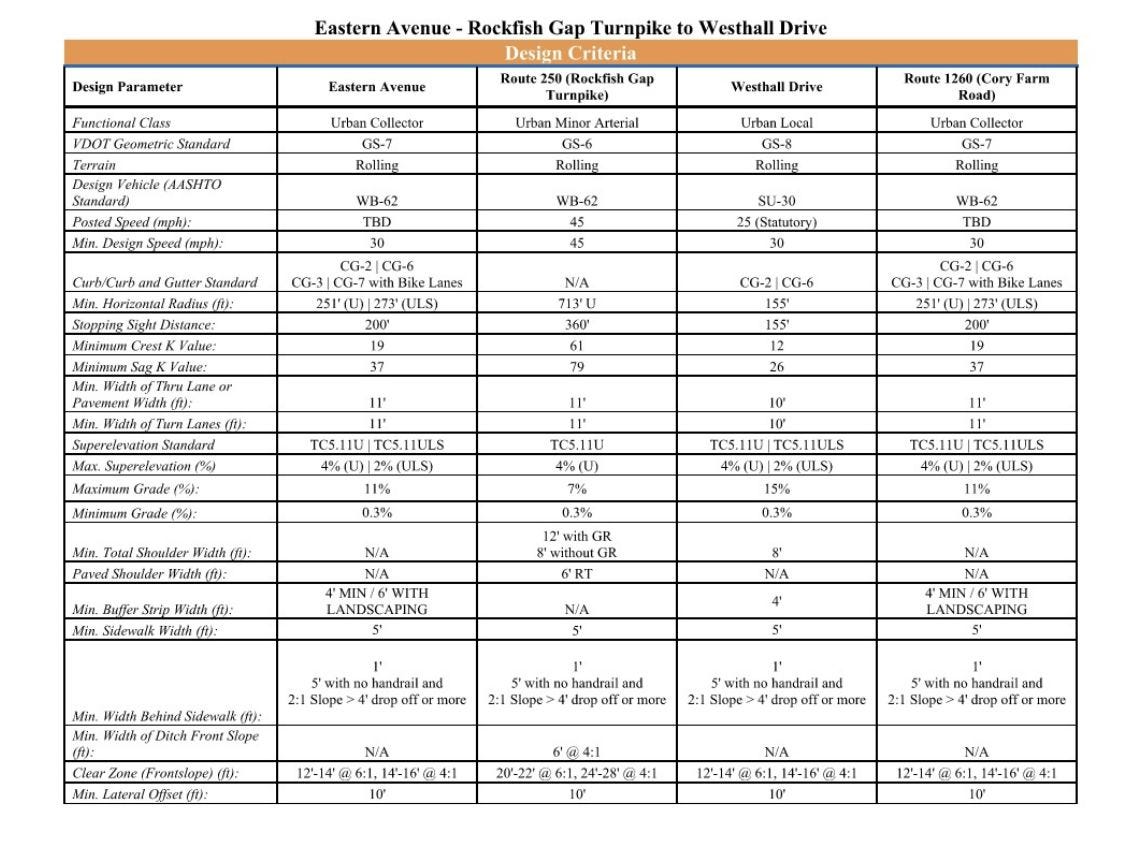

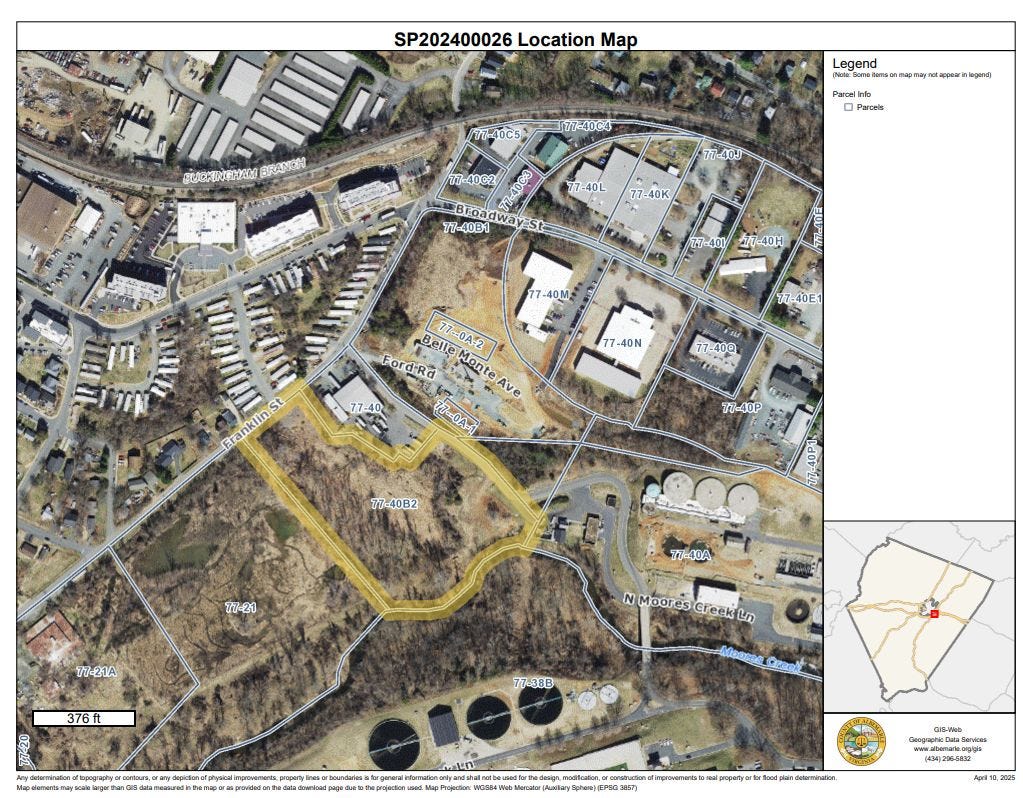
The story on the Albemarle floodplain originally listed the incorrect mobile home park. The request was for a property across from the Carlton Mobile Home Park.